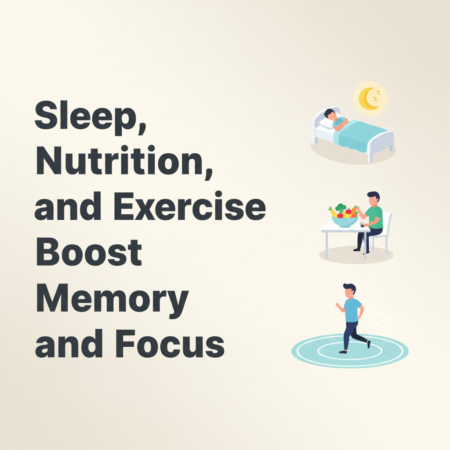Introduction
Exams, a source of stress for many students, are pivotal moments in the academic journey. But fret not, we are here to help. We’ll delve into the significance of managing exam stress, shedding light on why it’s crucial to tackle this challenge. In the following sections, we will provide a set of valuable tips and strategies designed to keep you calm, confident, and well-prepared. So, fasten your seatbelts and get ready to face your exams with newfound assurance, as we guide you through the path of effective stress management.
Understanding Exam Stress
- Exam Stress Defined:
Exam stress is that feeling of unease, worry, or fear many students experience before or during exams. - Common Causes:
It can arise from the fear of failure, the pressure to perform well, or anticipation of a challenging test. - Physical and Mental Effects:
Stress not only affects your mental state but also manifests physically. It can lead to increased heart rate, sweaty palms, and difficulty concentrating. Understanding these aspects is crucial to managing exam stress effectively.
Preparation and Organization
- Effective Exam Prep:
The key to reducing exam stress lies in effective preparation. Start early, make a study schedule, and break your study materials into manageable chunks. This not only ensures you cover everything but also gives you a sense of control. - Stay Organized:
Organize your study materials, notes, and resources. An organized study environment can work wonders in reducing stress. It prevents last-minute searches for notes and ensures everything is readily available. - Time Management:
A well-managed schedule is your best friend. Prioritize your study time but also allocate time for breaks, relaxation, and sleep. Adequate rest is essential for a clear mind. - Healthy Lifestyle:
Maintain a balanced diet and exercise regularly. Physical health plays a big role in managing stress. Avoid excessive caffeine or junk food and stay hydrated.
Relaxation Techniques
- Deep Breathing:
When you feel stress creeping in, pause and take a few deep breaths. Breathe in gently through your nostrils, pause briefly, and then release your breath through your mouth. Deep breathing calms your nervous system and can be done anywhere, anytime. - Mindfulness and Meditation:
Practicing mindfulness and meditation techniques helps you stay focused and present. Take a few minutes before your exam to close your eyes, focus on your breath, and clear your mind. This can reduce anxiety and improve your concentration during the test. - Progressive Muscle Relaxation:
This technique involves tensing and relaxing each muscle group to release physical tension. Start with your toes and work your way up to your head. It’s a great way to alleviate stress and promote relaxation. - Visualization:
Before the exam, visualize yourself feeling confident and performing well. This positive mental imagery can boost your self-assurance and help you manage stress. - Exercise:
Physical activity is a fantastic stress reliever. Even a short walk or some quick stretches can reduce tension and increase blood flow to your brain, improving cognitive function.
Healthy Lifestyle Habits
- Nutrition:
Eating a balanced diet with plenty of fruits, vegetables, and whole grains provides the essential nutrients your brain needs to function at its best. Steer clear of too much caffeine and sugary snacks, which may cause energy dips and heightened stress levels. - Exercise:
Regular physical activity is a fantastic stress reducer. Even a short walk, jog, or yoga session can help clear your mind and release feel-good endorphins. Strive for a minimum of 30 minutes of physical activity on most days of the week. - Sleep:
Adequate sleep is crucial for memory, concentration, and stress management. Set a consistent sleep schedule and develop a calming bedtime routine. Avoid cramming all night, as this can increase stress and decrease performance. - Stay Hydrated:
Dehydration can affect your ability to concentrate. Drink plenty of water to keep your mind sharp and your body functioning optimally. - Time Management:
Effective time management reduces stress. Create a study schedule that allows for breaks and social activities. Procrastination often leads to last-minute cramming, which is stressful and less effective.
Positive Mindset and Self-Talk
Cultivating a positive mindset is key to managing exam stress. Begin your day with affirmations to boost self-confidence, use visualization to see yourself acing the test, and challenge negative thoughts with evidence. Practice self-compassion and remember that it’s okay to make mistakes. Concentrate on the here and now rather than fretting over the past or future. Incorporate relaxation techniques like deep breathing and meditation to calm your mind and reduce stress. By adopting these strategies, you can approach exams with confidence and minimize anxiety.
Post-Exam Stress Relief
Managing stress after the exam is crucial. Engage in self-care through activities you enjoy. Avoid discussing the exam to prevent added stress. Celebrate your hard work and look ahead to your next steps in your study schedule. These strategies will help you maintain balance and reduce post-exam stress.
Conclusion
Managing exam stress is a vital skill in your academic journey. By understanding its causes and effects, preparing effectively, practicing relaxation techniques, embracing a healthy lifestyle, and nurturing a positive mindset, you can face exams with confidence. Remember to manage post-exam stress as well. These tips equip you with valuable tools to conquer academic challenges calmly and confidently.







